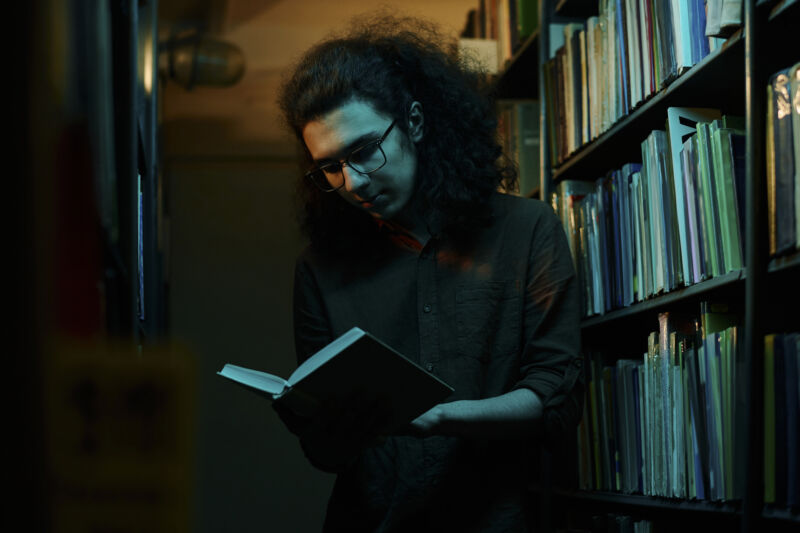
A number of the most notorious so-called shadow libraries have more and more confronted authorized strain to both cease pirating books or danger being shut down or pushed to the darkish net. Among the many greatest targets are Z-Library, which the US Division of Justice has charged with legal copyright infringement, and Library Genesis (Libgen), which was sued by textbook publishers final fall for allegedly distributing digital copies of copyrighted works “on a large scale in willful violation” of copyright legal guidelines.
However now these shadow libraries and others accused of spurning copyrights have seemingly discovered an unlikely defender in Nvidia, the AI chipmaker amongst these profiting most from the current AI increase.
Nvidia appeared to defend the shadow libraries as a sound supply of data on-line when responding to a lawsuit from e-book authors over the checklist of information repositories that had been scraped to create the Books3 dataset used to coach Nvidia’s AI platform NeMo.
That checklist contains a number of the most “infamous” shadow libraries—Bibliotik, Z-Library (Z-Lib), Libgen, Sci-Hub, and Anna’s Archive, authors argued. Nevertheless, Nvidia hopes to invalidate authors’ copyright claims partly by denying that any of those controversial web sites ought to even be thought of shadow libraries.
“Nvidia denies the characterization of the listed knowledge repositories as ‘shadow libraries’ and denies that internet hosting knowledge in or distributing knowledge from the information repositories essentially violates the US Copyright Act,” Nvidia’s court filing stated.
The chipmaker didn’t go into additional element to outline what counts as a shadow library or what doubtlessly absolves these controversial websites from key copyright issues raised by varied ongoing lawsuits. As an alternative, Nvidia stored its response transient whereas additionally curtly disputing authors’ petition for sophistication motion standing and defending its AI coaching strategies as honest use.
“Nvidia denies that it has improperly used or copied the alleged works,” the court docket submitting stated, arguing that “coaching is a extremely transformative course of which will embrace adjusting numerical parameters together with ‘weights,’ and that outputs of an LLM could also be based mostly, not less than partially, on such ‘weights.'”
Nvidia’s argument seemingly is determined by the court docket agreeing that AI fashions ingesting printed works with a purpose to remodel these works into weights governing AI outputs is honest use. Nevertheless, authors have argued that “these weights are completely and uniquely derived from the protected expression within the coaching dataset” that has been copied with out getting authors’ consent or offering authors with compensation.
Some corporations, like OpenAI, have already began licensing publishers’ content material, prone to dodge these copyright questions completely. Legal professionals for The New York Instances, which is likely one of the publishers suing OpenAI, have already instructed that OpenAI’s most up-to-date deal to license content material from Information Corp. “helps the rivalry” that “publishers must be paid when their work is used for AI,” MediaPost reported.
Till this query is settled by courts or lawmakers, corporations coaching AI on the Books3 dataset will seemingly proceed to face lawsuits from rights holders, notably from those that see AI fashions as an extension of harms brought on by these allegedly unlawful shadow libraries. A lawyer for textbook publishers suing Libgen, Matthew Oppenheim, beforehand advised Ars that Libgen is a “thieves’ den” of unlawful books, and “there isn’t any query” that Libgen’s conduct is “massively unlawful.”
Authors suing Nvidia have taken the following step, linking the chipmaker to shadow libraries by arguing that “these shadow libraries have lengthy been of curiosity to the AI-training group as a result of they host and distribute huge portions of unlicensed copyrighted materials. For that cause, these shadow libraries additionally violate the US Copyright Act.”
Whereas Nvidia apparently prepares to defend in opposition to copyright fits by disputing what a shadow library even is, the web sites on the coronary heart of Nvidia’s fits might take much less situation with the label. Anna, the pseudonymous creator of Anna’s Archive, freely makes use of the time period, describing the positioning as “the world’s largest shadow library” whereas providing to coach different so-called pirate archivists.
In a technique, it isn’t that shocking that Nvidia has appeared to take the aspect of shadow libraries with regards to beating again copyright claims, although.
Again in 2022, when feds began cracking down on pirate e-book websites, Anna told Vice that shadow libraries like hers function on the ethos that “data needs to be free.” AI corporations are arguably extremely incentivized to need the identical factor.
Nvidia lately announced that it made a report $26 billion within the first quarter of 2024 alone. For Nvidia and different AI corporations hoping to maximise earnings and command the AI market early on, there’s seemingly nonetheless no higher value for AI coaching knowledge than free and, thus, few higher sources for training-data than websites freely providing huge troves of data.
